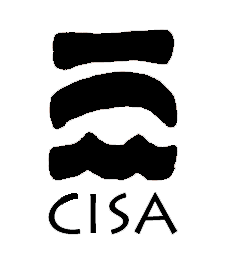DETRITUS – Statement of Publication Ethics and Publication Malpractice
- PUBLICATION AND AUTHORSHIP
1.1 List of references and financial support
All materials and information derived from other sources should be properly cited in the manuscript and included in the list of references. Copyrighted materials (e.g. tables or figures) should only be reproduced once appropriate permission has been granted, and due acknowledgement should be provided.
Financial support should be acknowledged in order to declare any potential conflicts of interest.
1.2 Plagiarism and fraudulent data
Data and information presented in the manuscript should be original. Data should not be fabricated, falsified or plagiarized. Plagiarism is the act of misrepresenting work or ideas of other authors as one’s own without specifying its source.
1.3 Dual submission and publication
Authors should confirm that the submitted manuscript has not been published elsewhere and should not be under review or consideration of publication by other journals. This includes non-English publications. Poster or oral presentation of parts of the work including a short abstract is not considered as prior publication. - AUTHORS’ RESPONSIBILITIES
2.1 Authors are obliged to contribute to the peer review process.
All submitted manuscripts are subject to review by suitably qualified reviewers. Authors are obliged to adhere strictly to editorial policies throughout the review process. On submitting a revised version of a manuscript, all changes made to the manuscript should be explicitly described in a note to the editor.
2.2 All listed authors should have significantly contributed to the research.
All individuals who have made a substantial contribution to the manuscript should be included on the list of authors; all people listed as authors should have made an independent material contribution to the manuscript.
The Corresponding author should obtain prior approval from all listed authors for the submission, review and publication of all versions of the manuscript.
2.3 All data reported should be true and authentic.
Data and information presented in the manuscript should be original. Authors should maintain accurate records of data associated with their manuscript, and supply or provide access to these on reasonable request.
Authors should ensure that any studies involving human or animal subjects conform to national, local and institutional laws and requirements and confirm that approval has been sought and obtained where appropriate.
2.4 All authors are obliged to provide corrections or retractions of mistakes
Authors should notify promptly the journal editor if a significant error in their publication is identified and cooperate with the editor to make the appropriate arrangements to correct the error. - REVIEWERS’ RESPONSABILITIES
3.1 Evaluation should be objective
Reviewers should contribute to the decision-making process, and assist in improving the quality of the published paper by reviewing the manuscript objectively, in a timely manner.
Editors may also choose to amend reviewer comments to ensure that courtesy and respect are maintained.
3.2 Reviewers should have no conflicts of interest
Reviewers should be aware of any potential conflicts of interest (with respect to the research, the authors and/or research funders) and alert the editor to these. A reviewer who feels inadequate to judge the manuscript should return the manuscript promptly without review and inform the editor of any potential conflict of interest.
3.3 Reviewers should perform thorough scientific review.
Reviewers should point out any constructive suggestions for revision of the manuscript, considering the quality and significance of the experimental work, the completeness of the description of material and methods, and the logical interpretation of the results.
Furthermore, reviewers should point out any relevant published and as yet uncited work, and any unethical behavior of the authors (plagiarism, fraudulent data, dual publication, etc.).
3.4 Reviewed manuscripts should be treated confidentially.
Reviewers should maintain the confidentiality of any information supplied by the editor or author.
The manuscript is the property of the authors until a copyright agreement between the publisher and the authors is signed. - EDITORIAL RESPONSIBILITIES
4.1 Editors may make an overarching decision to reject or accept a manuscript
The Editors’ decisions to accept or reject a manuscript for publication should be based on the importance, originality, clarity, and relevance of the paper. Editors should process manuscripts submitted in a timely manner.
Editors should ensure that appropriate reviewers are selected for submissions (i.e. individuals with relevant expertise capable of critically evaluating the manuscript, who have no competing interests). Editors highlight the need for all reviewers to be objective in their evaluation.
4.2 Editors should have no conflicts of interest
Editors should have no potential conflicts of interest with regard to the manuscript (with respect to the research, authors and/or research funders).
Should editors disclose any potential conflict of interest, they should avoid handling the manuscript, which should be assigned to another qualified person.
4.3 Editors should promote the publishing of of correction or retraction notice in the presence of errors
Editors should correct errors if detected prior to publication or publish correction notices if they are detected subsequently.
If an author or other person brings an apparent error to an editor’s attention, the editor should notify all authors and ask for corrections to be made. If the authors do not comply with the request in a timely manner, the editor should publish a notice of correction or retract the article.
4.4 Editors should at all times protect the anonymity of reviewers
Editors and members of the editorial staff should not reveal the identity of reviewers prior to or following publication of the manuscript. - PUBLISHING ETHICS ISSUES
5.1 Monitoring/safeguarding of publishing ethics by the editorial board
Editors should be open to opinions expressed by authors, reviewers and editorial board members relating to ways of improving any aspects of the journal, with particular regard to publishing ethics. Editors should actively monitor the fair performance of reviewers.
5.2 Guidelines for retracting manuscripts
Editors should consider retracting a publication if:
– the manuscript contains plagiarized and/or fraudulent data and information
– the results have been published elsewhere without proper citation, permission or justification
5.3 Maintaining integrity of the published manuscripts
Editors should be responsible for the integrity of all manuscripts published in the journal. Editors should ensure appropriate procedures and rules are in place to make certain the results they publish are of high quality.
5.4 Preventing business needs from compromising intellectual and ethical standards
Funding sponsors should not compromise the publication of results of the research. Researchers should not enter into agreements that permit the funding sponsor to influence publication of the results.
5.5 Responsibility for the publication of corrections, clarifications, retractions and apologies when needed
Authors should notify promptly the journal editor if a significant error in their publication is identified.
When a published paper contains a significant error or inaccuracy, authors should cooperate promptly with the editor to publish corrections, clarifications, retractions and apologies or to retract the paper, if deemed necessary.
5.6 Dealing with potential misconduct
Editors have a duty to take action if they suspect misconduct or if an allegation of misconduct is notified to them. This duty extends to both published and unpublished papers. Editors should not merely reject papers that raise concerns over potential misconduct. They are ethically obliged to pursue alleged cases.
Editors should first seek a response from those suspected of misconduct. If they are not satisfied with the response, they should ask the relevant employers, or institution, or other appropriate body to investigate. Editors should make all reasonable efforts to ensure that a proper investigation into alleged misconduct is conducted; should the latter not take place, editors should make all reasonable attempts to obtain a resolution to the problem.


